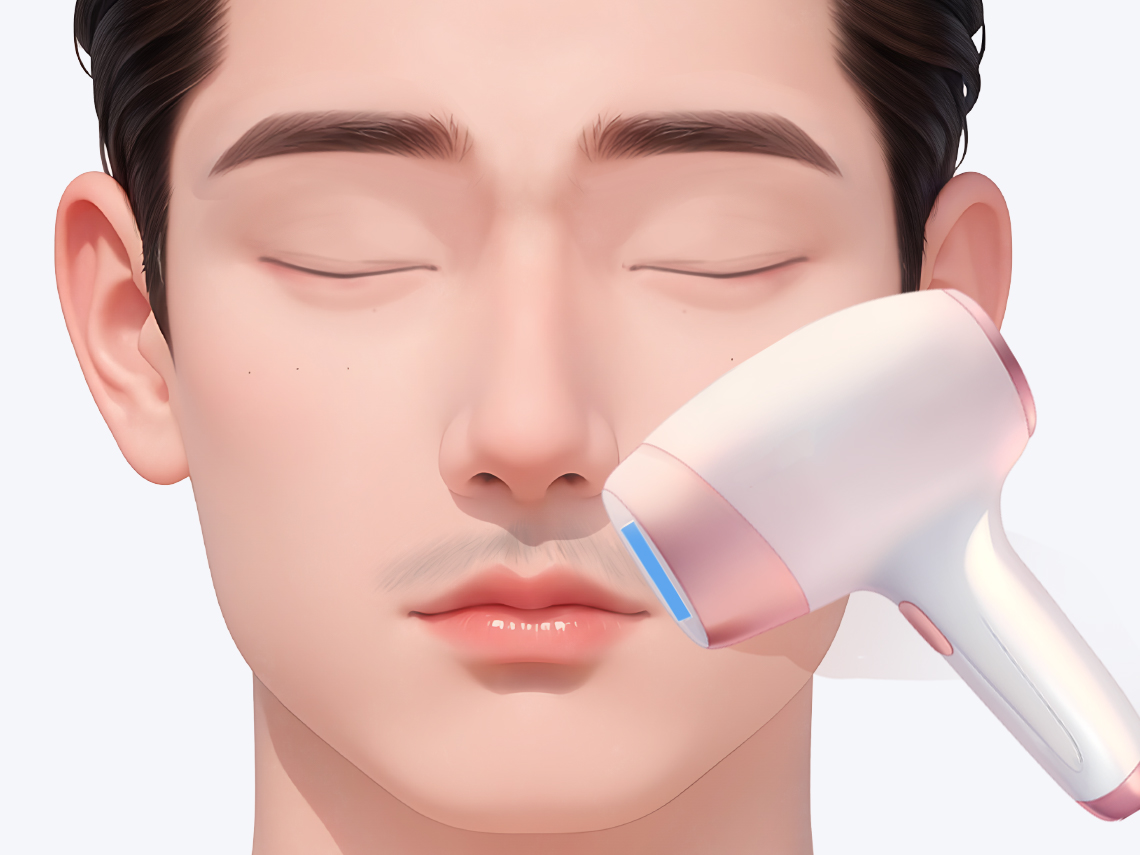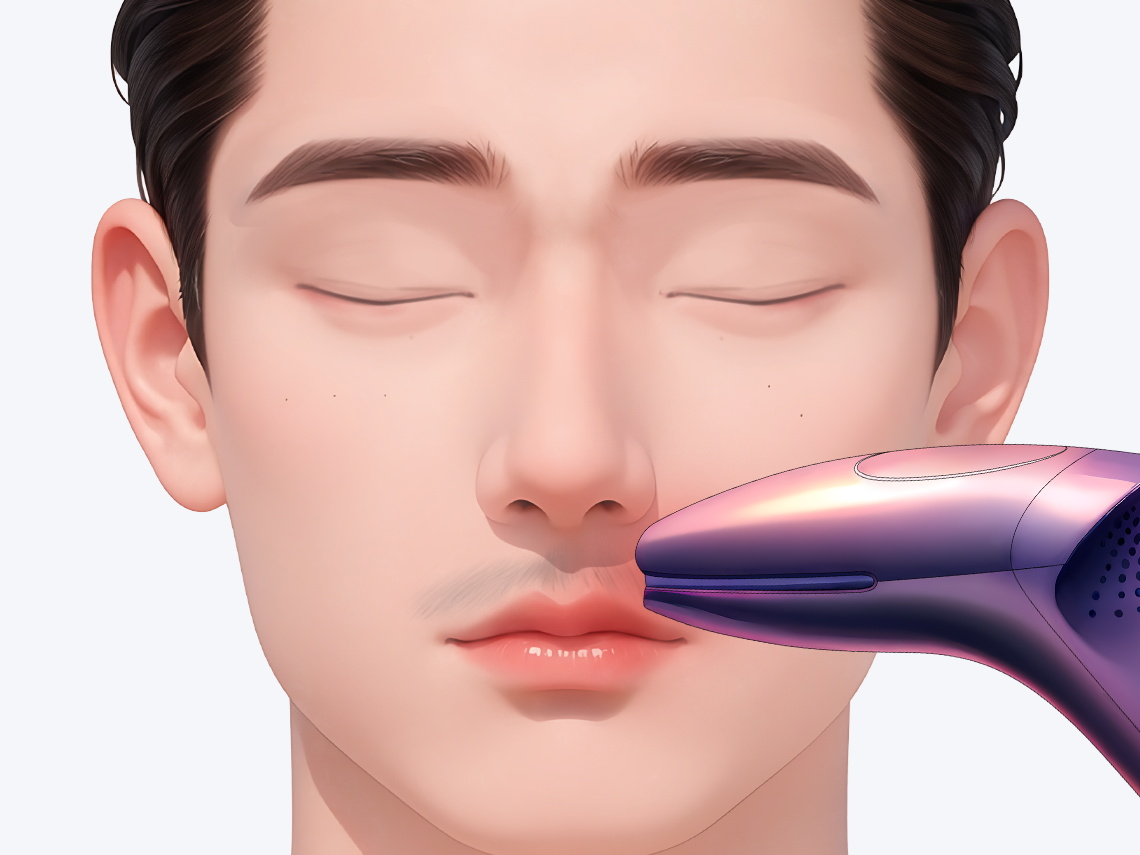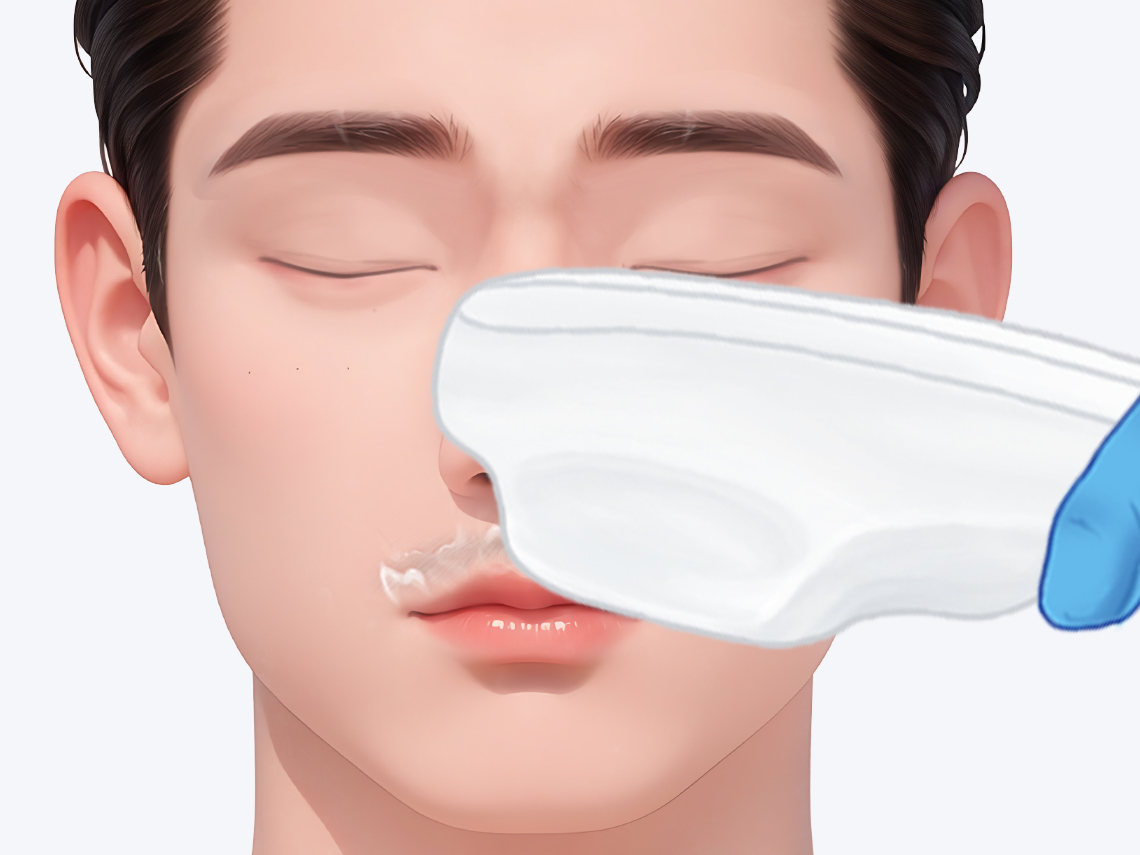What are the risks of permanent facial hair removal?
In general, if permanent beard removal is performed correctly, the risks are usually minimal. However, improper operation by the physician or inadequate postoperative care may damage the skin, allowing pathogens such as bacteria to enter the wound and potentially cause localized infections, manifesting as redness, swelling, heat, and pain. Severe cases may even lead to skin ulceration or scarring. Additionally, during the process of permanent hair removal, certain auxiliary materials such as gels and electrolyte solutions are used, which may trigger allergic skin reactions. Mild reactions may present only as localized itching or minor rashes, while severe allergic reactions could result in systemic symptoms such as facial swelling and difficulty breathing.
For those wishing to remove their beard, options include colored light hair removal, ice-point hair removal, and photonic hair removal. It is recommended to visit a reputable medical facility and undergo treatment under the guidance of a qualified physician.
Example image of beard removal:

Analysis of beard removal techniques:
Procedure Name |
Colored Light Hair Removal |
Ice-Point Hair Removal |
Photonic Hair Removal |
Reference Image |
 |
 |
 |
Description |
Utilizes the preferential absorption of colored light by pigment in hair follicles to achieve hair removal |
Uses photothermal energy to directly target hair follicle tissue, causing necrosis and atrophy |
Destroys hair follicle structure through photothermal decomposition to achieve beard removal |
Target Candidates |
1. Individuals with fine or light-colored hair |
1. Individuals without skin inflammation |
1. Individuals without skin diseases |
Reference Price |
2,000–4,000 RMB per session |
2,000–4,000 RMB per session |
1,000–4,000 RMB per session |
Advantages |
1. Minimal pain |
1. Painless |
1. Comfortable sensation |
Potential Risks |
1. Pigmentation |
1. Requires multiple sessions |
1. Skin sensitivity |
Beard removal should be performed at a licensed medical institution, with proper local aftercare to minimize adverse events. In daily life, it is advisable to avoid spicy and irritating foods, and increase intake of vitamin C-rich fruits and vegetables such as oranges, spinach, and carrots, which can aid skin recovery.




